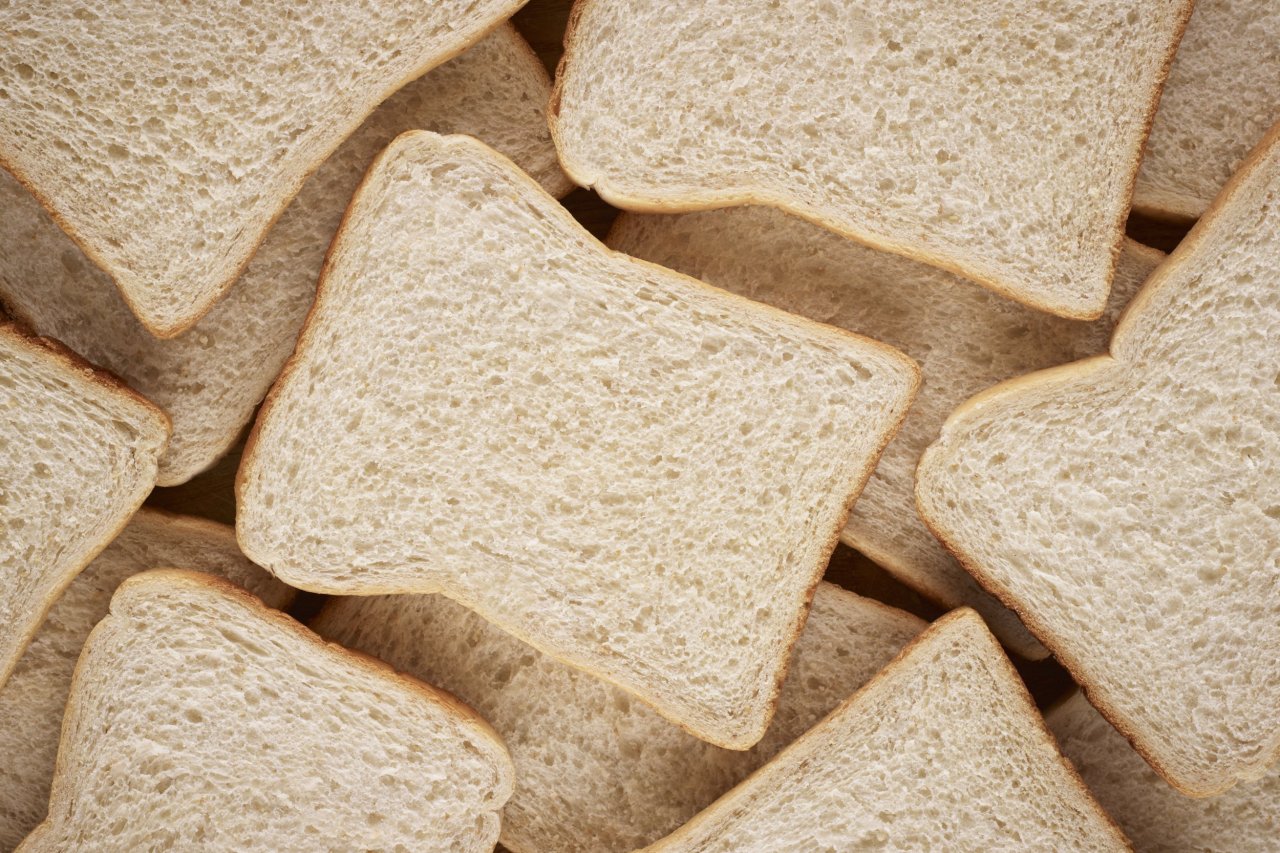Updated | For many health-conscious people, bread equals temptation. Burgeoning shelves of multigrain loaves, friends passing around sourdough starters, and attaching the word artisanal to the ancient combination of yeast, flour and water has led many consumers to believe that whole grain bread is healthier than industrial white bread. That trend has made for a lot of expensive sandwiches.
Fortunately, a new study by researchers at the Weizmann Institute of Science is here to help.
In the study, newly published in Cell, researchers randomized 20 participants to consume either processed white bread or artisanal whole wheat sourdough to compare the effects of each on the body. The study was conducted in Israel, so the researchers used a brand of white bread common in that country, the Israeli equivalent of Wonder Bread. The whole-grain group was given artisanal bread from a local bakery.
Before the study started, all the participants consumed the same amount of white and non-white bread for several days. Then each group ate, on average, at least 100 grams of bread—three to four slices—per day for one week. After a two-week break, the groups switched types for another bread-laden week. The total amount of calories the participants consumed remained constant for the study's entire duration.
The researchers were surprised to find that the artisanal bread did not treat the body better than the white bread. "There were no clinically significant differences between the effects of these two types of bread on any of the parameters that we measured," said computational biologist Eran Segal, the study's senior author, in a statement. Those parameters included glucose levels upon waking, fat and cholesterol levels, the amounts of essential minerals (like calcium, iron and magnesium) in the bloodstream and several indicators of inflammation and tissue damage.
In total, Segal and colleagues examined 20 different variables and found not one single notable difference between the white bread eaters and the artisanal bread eaters. Importantly, it wasn't that the breads both had no effect. Rather, they both did equal damage.
But those findings aren't the end of this yeasty story.
The lack of difference between the two breads led the researchers to wonder why. The findings imply that either the two breads have the same effect or that the effect of the bread is specific to each person. Such individual differences would disappear in the data analysis but could be underlying the overall average.
To gauge whether individual responses could be at play, the researchers measured glycemic response; that is, changes in blood glucose levels two hours after a meal. This measure is a crucial figure in determining whether a person is at risk for diabetes resulting from weight gain.
As it turns out, people respond very personally to bread. Half the participants had a higher glycemic response to industrial white bread, and half had the higher response to artisanal sourdough bread. "People have a personalized glucose response to bread," Segal tells Newsweek. "White bread may be better for half the people, while sourdough for the other half."
Related: Is IBS all in your mind? New study hints at close ties between the brain and the gut
Finally, the researchers found that which bread was best for each person could be predicted based on the bacteria present in their gut. They collected stool samples to determine the collection of microbes living in them and found that the "profile"—the variety of bacterial species—correlated with the glycemic response to each bread. The researchers hope to study these predictors more carefully as a potential way to improve nutritional recommendations, says biologist Avraham Levy, another study co-author. "To date, nutritional values assigned to food have been based on minimal science, and one-size-fits-all diets have failed miserably," Segal said in a statement. "These findings could lead to a more rational approach for telling people which foods are a better fit for them, based on their microbiomes."
In short, the study provides vital evidence that we should not judge each other in the supermarket's bread aisle.
Related: A genetically modified corn could stop a deadly fungal poison—if we let it
This story has been updated with additional insights from the study authors.






















